|
4/24/2017 Photography by Anzhelina PolonskayaBio: Anzhelina Polonskaya was born in Malakhovka, a small town near Moscow. Since 1998, she has been a member of the Moscow Union of Writers and in 2003, Polonskaya became a member of the Russian PEN-centre. In 2004 an English version of her book, entitled "A Voice," appeared in the acclaimed “Writings from an Unbound Europe” series at Northwestern University Press. This book was shortlisted for the 2005 Corneliu M Popescu Prize for European Poetry in Translation. In 2013 « Paul Klee's Boat » a bilingual edition of her latest poems was published by Zephyr Press and was shortlisted for the 2014 Best Translated Book Award and 2014 PEN Award for Poetry in Translation. Anzhelina Polonskaya has been awarded a Rockefeller Fellowship. The bilingual book of Selected Poems «Schwärzer als Weiß“ has been published in spring 2015 in Leipzig and represented in Leipzig Book Fair and the International Poetry day in Berlin. In 2016 her first volume of prose, Greenland has recently appeared in a German edition. Awards: International Words on Borders´ Freedom ( Ord i Grenseland ) Prize, 2016 4/23/2017 Missing Jolene by Gretchen GalesMissing Jolene Jolene Buchanan has been missing for twenty years. Her ‘Missing Child’ poster has broken from the rusted staples trapping it on the wooden electrical pole. It rained three days after Jolene’s disappearance, eating away at the thin corners of the poster until it softly ripped away. The heavy rain water had probably swallowed it into the sewers by now. It isn’t certain where the poster had ended up, just like no one ever found any trace of Jolene. No body, no blood, no fingerprints, no hair. A red smear was found on the floor, but it was only a smeared chunk of bright red lipstick. There are thousands of staples on that same pole from other posters, less important announcements and advertisements that can never overshadow Jolene. Dana Buchanan sits next to the phone — corded to the wall the way it had been in 1997 — the same as she does every evening after her receptionist job. Her friends and family tell her to disconnect it, move out of the house, get a new number. But she has to stay by the phone. Just in case. What kind of mother would she be if she didn’t? She still deserves to be a mother, no matter what Nancy Grace says. She still is a mother. Jolene is out there. She has to be out there. She gets hundreds of calls a week asking for interviews. Dr. Phil’s team called last year to invite her as a guest alongside JonBenét Ramsey’s father and her brother. The cases are both eerily close to one another; Both involve beauty pageant daughters, both six year-old girls, both never solved, and both involved the parents as prime suspects. Jolene had also been named after a father — Dana’s father Joe, who passed suddenly in a car accident when she turned sixteen. He was only forty. Maybe it was a mistake naming her child after her dead father. Maybe she shouldn't have named her child a name with the letter J, J for Jinx! You’ll never see them again. *** While she sits at the phone, she replays the moments the investigators asked her to recall the day Jolene disappeared. It was Saturday, January 18th at 8:35 a.m. Dana’s husband Shaun had just dropped off the two at the door in front of the Greater Richmond Convention Center. That’s where that weekend’s pageant was happening. Downtown Richmond was always hectic, but pageant season made it worse. Dana barked at her then-husband Shaun to just drop them off and to deal with parking himself while she rushed to prep Jolene for the show. Dana dragged Jolene into the dressing room and began unpacking her costumes and makeup bag. She dropped a round container of blush on the ground and groaned as it rolled beneath another contestant’s vanity. Dana grumbled and told Jolene to stay right where she was and to try and get at least part of her costume on. She crawled on the glitter and sequin-sprinkled floor, the sequins getting stuck to her knees and good panty hose. Dana sneezed as black feathers from other costumes floated like tumbleweeds across the floor. One even went straight up her nose! Reaching under the vanity the blush had rolled under, she retrieved it along with clinging dust-bunnies that attached themselves to her Ralph Lauren blazer. She brushed what she could off of her and watched them accidently float towards Memphis Hazelwood, a judge favorite and town sweetheart. Her mother June gave Memphis everything a little girl could want: the most expensive costumes, a personal dance instructor, a pony. It never ended. Dana was convinced that the pageants were often rigged in Memphis’ favor. She felt that June was good at bribing a judge in more ways than one. June glared at Dana and pulled her daughter in protectively enough to dodge the aerial threat, but not hard enough to touch her done-up hair. “Keep moving, bitch,” snapped June. “If you know you can’t keep up, don’t bother showing up." Dana just ignored June and walked back towards Jolene’s vanity. “Alright, missy,” began Dana, “We’ve gotta get that hair brushed again and —” Dana stopped. The makeup bag had been untouched and Jolene’s costume was sitting right where she left it. But Jolene... Jolene was gone. Just. Gone. Dana frantically searched for Jolene in the dressing room, shouting for Jolene. Only a few of the other moms noticed and tried to help her find Jolene among clouds of hairspray. They tried looking in the lobby. Dana found Shaun and began screaming and crying that their daughter was missing. Security guards stepped in to assist in the search. Her memory was fuzzy as to how long they canvassed the Convention Center, but after what must have been hours, the pageant was put on hold. Police officers came into the building later on and started taping off the area. “Do you have any enemies or people that would want to hurt your daughter?” the initial police officers had asked. “June Hazelwood has it out for me,” said Dana, “She basically accused me of trying to sabotage her daughter’s dress earlier.” But the police couldn’t find any connection to the Hazelwoods. Or anyone. There were no clues. Jolene had just vanished. Her entire life had vanished. Reporters would crowd around her doorstep every day for a month. “Mrs. Buchanan, have there been any leads on the case?” “Mrs. Buchanan, do you think a sexual predator in this area is responsible for her abduction?” “Do you think the same person who killed JonBenét kidnapped your daughter?” “Do you think you daughter is alive?” “Did you kill your daughter?” Shaun left Dana a year after Jolene’s disappearance. He couldn’t live like this, he would say. He didn’t even want children to begin with, but she had to beg for a child. And he had grown to love that child so dearly. She couldn’t even keep an eye on her. She lost her. *** Dana jerks awake at the sound of the doorbell ringing. Her eyes dart at the clock: 8:53 a.m. Who is here this early? It might be the local church group that brought food to her along with the elderly shut-ins. But they only come by after Sunday service, not on a Saturday morning. She had not ordered anything from the catalogs lately, so it isn’t the UPS man. Dana wanders up to the door and peers through the peephole. It is a young, frail woman dressed in tight black leather shorts, fishnet tights nearly covered by knee-high black boots, and a tethered gray tank top beneath an over-sized plaid button-up. Her fingers alone are as thin as the needles Dana would use to quickly fix ripped fabric on Jolene’s dresses. In a rush, Dana would grip the needle too hard and snap it in half. She wonders if the lightest touch would snap the mystery woman outside of her door. “It’s me, Mom,” the young woman announced loudly in a raspy voice, “Jolene. I’m Jolene Rosemary Buchanan, your daughter.” Dana froze. Many people called her home claiming she was her daughter, but never came to her doorstep. What should she do? Her first instinct was to yank open the door, grab her long-lost daughter, and cry as she grips her tightly. But though the woman at the door claims to be Jolene, time and captivity seemed to have altered the brightness of her eyes. They aren’t a vibrant hazel like they were, but a deep brown. Her hair looks frayed and brunette, not the shining blonde it used to be. “Your hair…” muttered Dana. “I know it isn’t blonde like everyone sees in the pictures, but my captor made me dye my hair,” she says, pulling at the scraggly tangles. “His name was Joe or something. I didn’t know much else, I’m just glad to finally be home. Can I go sleep in my bed?” Of course you can sleep in your bed… it’s just the way you left it. Dana wants to think. She’s wanted to think it for a long time. But how can she be sure? “If you are r-really Jolene,” said Dana, stumbling over her words, “what is my first name?” The woman thought for a moment. “Dana. Dana...Marie Buchanan.” the woman responded. “Is that right? I mean, I was only six-ish when the man grabbed me from the Convention Center so if I got it wrong you’ll have to forgive me. Maybe a nap will help. ” She pulls a pack of Marlboros out of one shirt pocket and a pink BIC lighter from the other, lighting one. “So can I come in?” she asked with a cigarette hanging out of her mouth. Dana stares at this Jolene. This dark-eyed Jolene. This tangled Jolene. This long-missing Jolene. She has been missing Jolene. Dana cracks the door open a little wider until the sunlight touches the hardwood floors. She will let this missing Jolene inside.  Bio: Gretchen is currently the managing editor of Quail Bell Magazine. Her written work has appeared in Wear Your Voice Mag, ROAR Feminist, The Establishment, Bustle, projects of SFG Media, and more. Gretchen has also been interviewed for Her Campus as part of their “How She Got There” series as well as a segment on For Creative Girls. She is based in a small town in Virginia. 4/22/2017 Poetry by Ally MalinenkoGravity Now It was a year of seemingly nonstop death they just kept happening one after another cancer, cancer, stroke, heart attack we lost musicians and artists actors we even lost moonwalkers and now another, carrying over into this new year 2017 that feels like a nothing year because we are rolling back our lives. There are only six moonwalkers left on this planet and here in New York City I can’t even see the stars. When they are all gone, we’ll all be earthbound. And only machines will get to see the stars sending us back pictures postcards and letters of what it could have been had we kept going forward instead of backwards. And I feel gravity now, not like something that keeps me steady or honest or even grounded but something that keeps me chained to a place I no longer want to be a place in which I feel no longer welcome. How Are You Not Free This is what he asks me. How? He wants a lesson and he wants it for free so today I’ll do the heavy lifting I’ll stop again and talk about death and health care about reproductive rights about a girl who carried her mattress around an Ivy League school just so someone would believe her. But it’s all white noise to him. I don’t see it, he says. I wave over here, at the Black girl thrown to the floor by the police, his knee on her twelve year old neck at the trans woman being humiliated into the noose. At the victim grilled on what she wore what she drank what she did wrong. At the pitiful six month jail sentence. The one that didn’t want to ruin the potential of the young man but didn’t care about the ruined woman. I don’t see it, he says, shrugging. I just don’t see it, he says. Show me again. Over here, I say, the healthcare that saves lives being stripped down for parts, the legislation of the body beaten raped groped touched without consent, humiliated grabbed Please listen, I say just listen to what I’m saying. Over here, at the women paid less docked for caring for her sick child harassed by her supervisor Or over here, the woman who has to take the harassment without flinching just to prove she’s worthy that’s she just as tough as any guy. I don’t see it, he says, walking away. I just don’t get it. All that fuss for what? How are you not free, he asks me. I gaze down at my body the question hanging there forever my form the very landscape of my pain. Look, I say, as he walks away. Look, there are scars that will never heal. But he just keeps asking How are you not free? How are you not free? How are you not free? That Eye is Fire I catch her eye briefly just for a second seeing in her the anger that rises as she seethes at the drunk or high or whatever she is, woman on the train that just told her and her boyfriend that Trump was going to deport them send them back to their country. Stupid spic she yelled as she wobbled on uneasy legs Trump’s going to deport you she screamed. Get off the train, the girl says. Let’s go. Her voice so calm as if she had been waiting her whole life for this moment. I catch her eye that eye is fire. It is power. It is knotted fists, it is heels dug into a country that does not love her when they tell her they love her but they want her to believe that they love her or that one day they might. It is what we carry now wet between our teeth a thing we cannot bite down on though we try and try every day. She’s wasted, my husband says, She’s totally fucked up. watching the woman sway and threaten say, If I see you again, I’ll snap your neck. And I agree, she is, in more ways than one but my empathy is low as I watch her pick from a box the worst words she’s got and spit them out at the brown girl on the platform the one who has crossed a tempest the one who has just been waiting for one chance to punch down instead of being punched upon and I wish to god I had the courage to push that woman right off the train to let the girl on the platform have at it to give with her fists just once what this country every day makes her take.  Bio: Ally Malinenko is the author of the poetry collections The Wanting Bone, How To Be An American and Better Luck Next Year as well as the novel This Is Sarah. She lives in the part of Brooklyn the tour buses don't bother with. In memory of Jarred and Cameron who ended their journeys in 2016. Keep singing the songs that you love, your voices have not been forgotten. For the most part … branding’s insatiable cultural thirst just creates more marketing. Marketing that thinks it’s culture. – Naomi Klein, No Logo It’s 1995 and a man appears from the shadows on my TV screen. His sunken eyes are offset against a face which, despite being pallid and slightly doughy, is far from being unattractive. He’s wearing space-ship silver pants and a black, long-sleeved shirt which reads ‘ZERO’ in sans-serif block, printed above a 5 pointed star and he shines in haphazard glory from beneath a casually dishevelled mop of hair. “The world is a vampire,” the boyish man drawls in nasal monotone to his audience, a slight smile forming on his lips as he approaches me, his gaze descending, his rrrs slurring, “sent to draaiiaaaiaaiin.” Thus begins The Smashing Pumpkins’ ode to frustration Bullet With Butterfly Wings, a song that would place them in the spotlight of the alternative rock scene which defined the face of counterculture through the 90s and into the early 2000s. The statement itself has always rung out as an ominously self-defeated admission: the world stage set in the pull of consumerism to which bands like The Pumpkins seemingly stood in defiance, the term ‘vampire’ alluding to the cannibalistic nature of social existence, be it in the form of self-representation, or through passive consumption as a viewer (and perhaps by implication, fetishist) of brands, cultural constructs and celebrity personalities. In this way, the band acts as both the drained and, in part, those doing the draining. As the song continues, it’s the angelic animalistic furore of Corgan and co. interspersed with images of near indistinguishable pit workers—faces and bodies covered with dirt and digging trenches—that visually reinforces the song’s underlying division and the resultant discordance of separation. Like most forms of imagery it’s enough that the two parallels are associated through proximity and repetition: the thesis of the production is rendered through the whole emotional spectrum of its (apparently) individual elements. In such a way, the band members are double-cast as fallen angels and celebrities, begrudgingly accepting (and at the same time defying) their role as commodity. Yet as Corgan sits askew on a makeshift barebone throne of debris and sings “but can you fake it/for just one more show?” it’s made clear that he and his circle are still firmly immersed within the struggle depicted in the pits below. Between the singer’s bratty posturing and the beastly de-humanity of his body language—spitting, spinning, gnashing his teeth—the frustration in his words is accentuated and catalysed through the realm of a kind of aesthetic anarchy. The clip achieves its message of beauty through—or in spite of—frustration via this hybrid space of sound, word, image and intertextuality: Job in his cave filled with a furious hope that his faith is not misplaced; the miracle of a butterfly discovered amid chaos; endless layers of dirt and an incessant compulsion played out through repetitive hammerings of the earth. Of course, none of this would occur to me back in 1995 as I’d first sat enraptured by Billy’s gorgeously cherubic—yet at times nasally—voice. My extended relationship to Bullet With Butterfly Wings, and its video directed by Samuel Bayer, would develop over the course of 1999-2001 watching The Australian Broadcasting Corporation’s long-standing music program Rage during many a late night/early morning investigation into some kind of post-adolescent cultural understanding, in which my restless mind became compelled to reimagine the outlines of an ever-shifting self-identity. Bullet was one of the many songs I’d pieced together on an old VHS tape which comprised a personal pseudo-narrative connecting the rock anthems of the 60-70s, the neuromantic/goth waves of the 80s through to the grunge and industrial aesthetic of the 90s and early 2000s of my then-present tense. I was intrigued by the raw animality of a song like Led Zeppelin’s Whole Lotta Love, yet wondered how its spirit of rebellious libido had, over time, translated into the careful disquietude of Depeche Mode’s Enjoy the Silence, both of these appearing as bridges over the decades between which they were released. The sadness of Nirvana’s 1993 MTV Unplugged cover of David Bowie’s The Man Who Sold The World somehow underwrit much of the casual self-loathing indicative of the grunge era. Finally, the vitriol of Nine Inch Nails’ Starfuckers Inc. —replete with body caricatures of Corgan, Courtney Love, and Fred Durst among a slew of others being smashed carnivale style by frontman Trent Reznor and his briefly reconciled protege Marilyn Manson—pointed towards some imminent climactic moment of discord, at once exciting and overwhelming, yet ultimately short-lived. There were also pieces such as Bjork’s Big Time Sensuality and Tricky’s Christian Sands; songs which somehow seemed relevant to the journey while subverting the contours of the narrative I’d developed. Sadly, this collection was decidedly un-Australian, with Stagger Lee by Nick Cave and The Bad Seeds being the only exception, pieced onto the tape’s conclusion with its exuberant swagger and its rapid descent into a distinctly cataclysmic dread. Now it’s 2017, and lacking the time I once had to search through the undercurrents of culture, everywhere I look I see and hear the same fixtures and formations in the tunes, tones and faces of musicians and artists. Over Calvin Harris’ discernibly homogenous beats, Rihanna’s graceful form sings of an idealised woman who has eyes only for me, and rapper Future waxes post-intellectual about becoming accustomed to life with mansions, casual wealth and a ‘stack of booty bitches’. It seems they’ve largely transformed into sublime women adorned in fine clothing, or scantily clad, or just as often they’re young gentlemen covered in shiny baubles and dollar signs. I notice the language has changed from a generalised sense of rage against the machine (of the social order) into a kind of intrapersonal spirit of competition with perceived rivals; the very fabric of society painted as a short-fused melting pot of uncertain personalities, vying for attention, or else a yearning for something not fully explicated: a sense of love, recognition (or acceptance?), a wistful bodily connection ever out of reach. It’s not that these songs don’t have their own form of substance, or that these musicians are any more (or less) implicitly constructed than were the Smashing Pumpkins or Nirvana or Trent Reznor, or any other of the artists I played on that old VHS tape—and I’ve grown beyond the smug belief that the cultural forms which shaped my growing years were somehow more real or relevant than what today’s recipients of Mass Media engage with. Rather, it’s as if an unconscious language of disconnection from some imagined autonomic state has superseded the explicit norms of our cultural diversification, and sometimes it almost seems like we all have to pretend to be someone else to feel whole—to be intertextualised, cross-promoted and draped in age old narratives; the implied manicheism of the hero myth and its assumed antagonists. I notice it’s this same yearning to be other than I am that sometimes keeps me going back for more when it all feels lost to me; food, cigarettes, coffee. Nights of sleeplessness. It has me remembering long strenuous nights, high in dark rooms, searching for something I couldn’t yet possibly perceive, and the seemingly brief faces of others who never stopped searching; their journeys and their songs now lost to us, but for the labyrinthine pathways of our collective memories. I’m sure we all have our own pantheon of songs that helped shape our personal understanding of ourselves and our respective places within the world. But I feel there’s an immanence beyond the rage and melancholy which we’ve yet to reach, some unexpressed—and as of yet unarticulated—emotion that lies dormant beneath the trappings of symbolic intrigue without end. And I’ve learned that there’s nothing so self-seductive, so innately deceptive, as waiting in anticipation for someone else to define it. In dreaming of a future, I find myself waiting for the emergence of a generation that commands an awareness of the simulacrum that incessantly seduces and begs for (or just as often, demands) our attention; that can circumvent and redirect its intent; some lucid collective consciousness which can find its own voice and redefine its own story without resigning itself to the cynical void of hypercritical solipsism, nor further exacerbating the dangerous platitudes of creating monsters out of others. But it’s not enough for me to wait and resign myself to the role of spectator. While the monetising and monopolising of culture persists, we’re all piecemeal appetites searching for an intangible dream. Perhaps the only dream left unimagined is the recognition that it’s human culture (in its present form), not the world which drains, and that it’s within our power to change the way we act and the journey we’re embarked upon. Of course I’ll keep listening to the songs and artists I love, even the ones that seem to me trapped in a moment of eternally recurring anger and confusion. But, in time, I’ll strive to sing my own songs too. 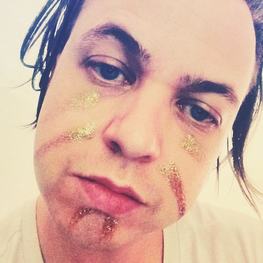 Bio: Jon Anātman is a journalist of the secret, a lover of the statistically infrequent and a pilgrim in search of the unconscious aspects of human experience. His work explores media, storytelling, language, fringe ideology and junkyard philosophy. He's currently completing a MA of Publishing at the University of Sydney and is an editor at @thistlemagazine.
Photography by Jonathan Ryder
From the rugged terrain of Northern Ireland comes a songwriter who, as The Irish Times puts it, is "a bit of a wonder." Hannah McPhillimy, however, is solidly grounded when it comes to what she does, "I still feel a fool explaining to people what it is that I do" McPhillimy remarks, "- surely, I sometimes ask myself, singing at unsuspecting punters can’t be viewed as a legitimate life direction?" But ultimately it's what art lets loose into the world, something which would have been found lacking if not for our unique, singular contribution, that makes any creative calling incredibly worthwhile. As McPhillimy puts it, "the buzz of bringing entirely new art to life, throwing it out to strangers across the world and finding, oddly enough, that it has found a place and a home with them is like no other I have known." A string of well crafted, thoughtful musical releases, the most recent of which is last years Wind Machine shows the mark of a songwriter who pens from deep within, it might be thought of as a given but not all musicians create from the depths, some play it safe on the surface, not so when it comes to McPhillimy. As she remarks to what this creative journey has taught her, main among many life lessons is that "Not knowing where you’re going is not a good enough reason to stop going there." Adding, soberly, that "life is opaque/uncertain/incomprehensible for everyone, you might as well make moves towards the things that make you feel most alive. Or if you can't do that, do the things that make for the funniest stories – that’s life lesson number two." AHC: What has this journey in music, so far, been like for you, the highs and the lows, and what life lessons do you feel you've picked up along the way? Hannah: My journey into music has been a very cautious one. Growing up in a wonderful but very secure household and small-town community, the idea of making a career out of music wasn’t necessarily encouraged - although to be totally fair it wasn’t necessarily discouraged either. Rather it was that the music world was one that no one I knew had ever set foot in and understandably enough, was viewed with more than a little confusion and suspicion. All strange and sparkly and frivolous and fickle. I grant you that this is better than outright opposition but it may help explain why it took me until I was twenty-two to perform my own songs in public and perhaps, why I still feel a fool explaining to people what it is that I do - surely, I sometimes ask myself, singing at unsuspecting punters can’t be viewed as a legitimate life direction? However, despite my and others doubts, I found that I couldn’t help myself from tiptoeing into that world - and performances at family parties, university fundraisers, friends of friend’s back gardens gradually did give way to shows at actual brick and mortar music venues, festivals I’ve actually heard of and even the odd appearance on the actual BBC. The journey has of course been fraught with the lows I had been well warned of – financial insecurity, negative feedback, periods of hyper attention followed by stone cold silence – but also with unquantifiable highs – the buzz of bringing entirely new art to life, throwing it out to strangers across the world and finding, oddly enough, that it has found a place and a home with them is like no other I have known. So to wind this up, I think the most important lesson for me has been this – not knowing where you’re going is not a good enough reason to stop going there. As Claire Keegan puts it ‘to be an adult, [is] for the greatest part, to be in darkness.’ – the reality is that life is opaque/uncertain/incomprehensible for everyone, you might as well make moves towards the things that make you feel most alive. Or if you can't do that, do the things that make for the funniest stories – that’s life lesson number two. AHC: What first drew you to music and what was your early musical environment like growing up? Were there pivotal songs for you then that just floored you the moment you heard them? Hannah: My musical diet as a child was made up of Van Morrisson, Emmylous Harris, Disney Songs, Church hymns and the odd Irish ballad. Not the coolest influences in the world but they all told a cracker story. Stories are lifeblood to children and music seemed to me the absolute best way to devour them. I remember hearing Frances Black sing ‘After the Ball’ – an old Irish song about lost love and regret (what else?) – and feeling all the complexity of the emotions so heavily, even as a little whippersnapper of six years old. As a teenager, lyrics continued to be an irresistible draw - the Duke Special song ‘Low’ was highly significant for me somehow articulating my most private feelings towards my faith. It was then that I began to realise that songs weren’t merely passive entertainment but had an astonishing power to actually act on their audience – generating the intimacy and empathy we all feel that small longing for. AHC: Do you remember the first song that you ever wrote or played? Or that first moment when you picked up a pen and realized that you could create whole worlds just by putting it to paper? Hannah: The first song I ever wrote was a co-write with my friend Laura in primary school – it had both a jaunty ‘call and response’ and Jesus in it. Laura and I sadly couldn’t reconcile our artistic differences (she wanted to lose the Jesus bit) and although I continued to write (many) more songs I wasn’t able to recreate the creative firework of the partnership that was Smith and McPhillimy. It wasn’t until my late teens, I discovered jazz and was propelled in a different direction; murder ballads. Writing for a fictional world, rather than a world I thought I knew, opened the door to more melodic and instrumental experimentation and helped me to see that there weren’t really any boundaries to where you could go with song-writing. AHC: Which musicians have you learned the most from? Or writers, artists, filmmakers, family members, teachers/mentors etc? Hannah: Jan Carson (who’ll you’ll find out a little more about later) is an author from Belfast and has been an invaluable inspiration to me as an artist. The arts world can be trendy and ephemeral and exclusive but Jan always strives to make every event as life-affirming and welcoming as possible, without ever compromising on the quality or delivery of the material. That is a hard but incredibly admirable balance to strike and she pulls it off every single time. I also have to give a shout out to the singer-songwriter Anthony Toner and Music Producer Stuart Reid who always take the time to chat to me when I am in a crisis. Anthony with his good humour and encouragement has pulled me out of many a dark, existential hole while Stu has been wonderful at pushing me to think bigger and greater and with more courage than I have been doing up till now. An artist who I do not know but is dear to my heart is Leslie Feist and I find her mantra that mistakes are not mistakes ‘if you make room for them’ incredibly comforting. AHC: What do you think makes for a good song, as you're writing and composing, is there a sudden moment when you know you've found the right mix, that perfect angle of light, so to speak? Hannah: For me, a good song has to have the right amount of unpredictability versus satisfying your expectations. This can happen in different ratios depending on what you’re trying to express, but the point of great songs for me is to make me take stock and make me think. If something is too formulaic or predictable or contrived I will switch off right away – however, I know from the weaknesses in my own writing, that there is a place for an anchoring chorus or consolidating with repetition so that people can follow where you are trying to take them. The challenge for me is to hit that sweet spot between totally expressing everything I want to say and making it discernable to somebody who is not me. I can relate to there being a sudden moment when I think I’ve hit on a good song, although it isn’t often confirmed until I play it publicly. That’s when you really know in yourself whether you’ve communicated something well or if you’ve made a second rate piece of rubbish. I wish the reckoning could take place in a less humiliating setting but unfortunately I don’t think that’s how it works! AHC: Do you consider music to be a type of healing art, the perfect vehicle through which to translate a feeling, a state of rupture/rapture, hope lost and regained? Does the writing and creating of the song save you in the kinds of ways that it saves us, the listener? Hannah: What a wonderful question. Yes, one hundred percent I think music is a healing art. This is my prayer for my music that in some bizarre way that it would be restorative for people. I think the reason it can do this is that music – incredibly – is a totally acceptable and actually celebrated way for us to completely reveal ourselves to each other, warts and all. In what other walk of life is this bare-all, vulnerability applauded? In what other platform is it so effectively communicated? I think also yes to the second part of your question, in that the writing and creating helps us give expression to what’s inside us, which is in itself life-giving. However, I think the bigger impact on the writer is finding that what you have expressed has been heard and found a home with another human – when this happens it really is a form of salvation or ‘a kind of communion’ as the composer Evan Chambers likes to say. AHC: There is a really beautiful story behind your ep Disappear Here, could you tell people the back story of this work and what inspired you to bring it into the world? Hannah: ‘Disappear Here’ is the result of a collaboration between my friend and novelist Jan Carson and I. Jan approached me in the lead up to the publication of her first novel ‘Malcolm Orange Disappears’ to see if I would be interested in writing some songs that would be grounded in excerpts of her writing and could be performed alongside her readings. Jan has a massive involvement with older people here in Belfast and so she was keen to make the performance piece Dementia friendly. This desire, along with Jan’s highly imaginative and evocative writing, made it a very easy project to say yes to. Over the course of a couple of months I wrote three original songs and interpreted a couple of others which were then performed (and later recorded) in four different settings throughout Ireland, to which older people were catered to - we then recorded them in support of th Alzheimer’s Society. You can find a link to the recordings here: https://hannahmcphillimy.bandcamp.com/album/disappear-here AHC: What are your fondest musical memories? In your house? In your neighborhood or town? On-tour, on-the-road? Hannah: My memory is shockingly bad but quite recently I was on tour in the USA thanks to the very kind support of the Irish Arts Center in New York and it was pure joy. After a stand-out gig with them I went to Washington D.C. and played a show in a mansion full of chandeliers, secret passage-ways and housed Prince’s purple jacket, Janis Joplin’s guitar and a hair from Elvis’s head among other things. It was one of those shows that I lapped up from beginning to end, the audience was kind and engaged, the setting was unreal and the wine was bottomless. AHC: When you set out to write a song, how much does 'where the world is' in its current moment, culturally, politically, otherwise, influence the kinds of stories you set out to tell? Hannah: I have to admit the majority of my songs so far are very introspective and have come from a very personal place. I suppose you could argue that your own experience is one reflection of ‘where the world is’ but I’m not sure that will continue to cut it in these crazy times. AHC: Do you have any words of advice for other musicians and singer-songwriters out there who are just starting out and trying to find their voice and their way in this world? What are the kinds of things that you tell yourself when you begin to have doubts or are struggling with the creative process? Hannah: A little tip I’ve learned from Jan is to help you make sure you’re listening to the right voices. Everyone has a right to an opinion of your work – it’s out there for public consumption – but not everyone’s opinion should be given equal weight. I’ve found it helpful to filter feedback into three different circles, like the layers in a dartboard. Most people will fall into the outermost circle – they don’t know you or what you’re about – whether their take is that you are God’s gift or that you suck, don’t pay too much attention to it. There will be a smaller number of people, perhaps ten or twenty, who you care about but perhaps don’t entirely grasp your work or your values – this is often family and friends – you can always consider their opinion, but if it isn’t helpful don’t hold onto it. Then there’s that little green circle who are the voices to who will stretch and guide you closer to where you want to go; I would really recommend seeking out three or four people whom you trust both artistically and character-wise and keep their words close. In the end though, it’s good to remember that you get the final say - you are the boss in this scenario. I tend to think the only way we can make sure we're really original is to make sure we are bringing ourselves to the project - you should have permission to ignore everybody, as long as you're not intent on committing a crime or something. AHC: Do you have any new projects you'd like to mention? Hannah: I’m afraid you will have to watch this space. I released an E.P last May called 'Wind Machine', which I have been touring for almost a year now and it is time to begin the writing process all over again. I am planning to work with a producer this time around and hope something might emerge on the interwebs before a possible relocation in August. Time will tell! Visit Hannah's website @ www.hannahmcphillimy.com/ hannahmcphillimy.bandcamp.com/ 4/21/2017 Poetry by Steve KlepetarThe Lucky Ones The ones with shadows growing from their heels unbruised, they are the lucky ones, who have eaten today. They have eaten and felt their bodies move across sand. True, frogs joined them in the showers, but they are the ones who still have their feet, who have not yet changed their eyes for glass. All night water grew around them and rested by their toes. Sometimes it rippled, thick as oil. It was black, and seemed to suck in every beam of light. Senseless, they gathered stones by the water’s edge and built little pyramids and cairns. They built idols and alters, and in firelight they made new songs. They buried their dead and carved their names into rock. Something rustled in the trees, and they felt fear, like a green snake moving through their bowels. An owl flew past their camp, and they were startled by its bulk, the hoods of its strange, yellow eyes. In its talons it carried a mouse, that writhed like a little ball of death. The bird had flown from somewhere far away, a mountain or a sea of glass. How long would it be until sky turned over, and they were left clinging to the underside of a world caught in sunset’s violet storm. Drums I am trying to untangle the words of the drum. Drums are tongues of the blood. They pound through walls of our flesh. They lie beneath patterns of our speech and the many ways we walk. Drums heave us up hills and down into the sea. They whisper our bodies into cloud and rain. Drums have a thousand ways to speak of arms and legs and lungs. They teach many things about fingers and palms. When oceans rise and beaches disappear, when mountains glow in dirty red waves, drums will build a wall of sound, a monument of moving air to honor the echoing dark. Werewolf and the Moon Showerhead of light in blue-black pool of sky, his tail balloon, the round boat in which he sails across tides of toothy lust. How he paddles with hairy hands, how deep the green ocean beneath dreaming eyes. Lustrous pearl on a long and beautiful neck, shining mirror for his true face. One day soon his tongue will reach that sweet wafer, lick its sugary surface bare. Messengers of God some of the friends will never be aware of a single tree they will live in a world without a leaf where the rain is misfortune W. S. Merwin I don’t believe that birds are the messengers of God, though their songs, their screeches and caws and coos have meaning, even in a world of glass and cars. All night their silence is an absence that weighs on my ears, a leaden nothing broken by wind. Sometimes a siren shrieks down my street, or a train rumbles by carrying oil or wheat or parts for machines. I might be sleepless then, counting my money, twisting the ends of my dreams. 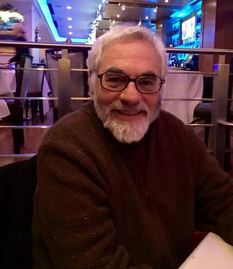 Bio: Steve Klepetar lives in Saint Cloud, Minnesota. His work has been published widely in the U.S. and abroad, and has received several nominations for Best of the Net and the Pushcart Prize (including four in 2016). He is the author of twelve poetry collections, the most recent of which are A Landscape in Hell; Family Reunion; and How Fascism Comes to America. 4/21/2017 Summer Camp By Deena ElGenaidiSummer Camp They weren’t supposed to be out by the lake alone, but it was Julia’s idea. “Let’s go swimming,” she said. “We’ll sneak away during lunch.” “We can’t,” Aiden said. “We’ll get in trouble.” “What’re they gonna do? Kick us out of camp? We’re leaving anyway.” So there they were by the lake in their swimsuits, Julia wearing a two-piece but one of those sporty two-pieces and not the bikini type, and Aiden couldn’t help but stare, but then again, he felt like he was always staring, two-piece or not. It was the last day of camp, and Aiden knew if he didn’t say anything then, he’d never get another chance. That summer, he hadn’t expected to fall for a girl, and he wondered if this was what love felt like and if a 12-year-old could even feel love, or if love was something reserved for the adults of the world. Julia tiptoed into the lake, avoiding the rocks on their path. This wasn’t where they were supposed to swim, away from the docks, away from the lifeguards, but this area was covered in the shade and shelter of the trees, so they were able to remain out of sight. Aiden followed Julia, avoiding the rocks just as she had, his eyes cast down onto the clay-like ground. He didn’t want this to end. He didn’t miss home or his parents or his little sister because he just wanted to be here, now, at the lake with Julia. The water felt colder than usual, probably because they were out of the sun, but Julia didn’t slow down, and he followed her as she walked in and kept walking until the water reached their necks. She stopped and turned to face him, saying nothing, and he didn’t speak either, but she took a deep breath in and shut her eyes, and suddenly, she disappeared, submerged under the cloudy water, so he, too, took a deep a breath and followed her under, and when he rose back to the top, she was already there, her curly brown hair dripping wet, the curls no longer in tight ringlets but falling loosely over her shoulders. “See?” she said. “This is fun. How much would it suck if we were in arts and crafts right now?” He smiled and didn’t care that he wouldn’t be able to take home the ceramic vase he made for his mother because he was here in the lake with Julia. She dove back under and swam farther out, so he followed again. They treaded water in a circle of sunlight away from the trees, and he opened his mouth to speak. Now was the time. “Julia, I need to tell you something.” He knew he might never see Julia again. They lived in different towns, and unless he told her how he felt right then and there, this would be it. He’d live his life in regret, and she’d never know, and maybe she liked him too, and if they both liked each other, this could be something. “Okay,” she said. She stopped treading and began to float on her back. Her stomach expanded and deflated, up and down as she took each breath, and he watched her close her eyes, her face expressionless, relaxed, completely comfortable, there, with him, in that lake. He needed to be standing on solid ground. He couldn’t focus on his words while treading water. He dove under and began to swim closer to land, hoping she’d follow him as he followed her, and she did. He heard her begin to move and then heard a splash as she dove under. He stopped and reemerged once his feet could touch the ground. So did she. “Julia,” he said. “I like you, and I don’t know if you like me, but it’s the last day of camp, so I want you to know. I kind of think maybe you do like me because we spend all this time together, and I don’t want camp to end and then to never see you again…” He couldn’t remember everything he said, and at a certain point, he stopped focusing on his words altogether, but he remembered the blank expression on Julia’s face, her lips slightly parted, and he wasn’t sure anymore if she was even listening, but he kept talking, afraid to stop, afraid of what she’d say. “… I’m not saying we have to be girlfriend and boyfriend,” he said, “but maybe this is what love feels like…” He didn’t know why he said that – why he used that word – but her face didn’t change, and he knew he was running out of things to say, so he stopped, ending with the words, “And that’s it.” Julia nodded. “We should get out,” she said. “I’m getting cold. Aren’t you?” “Y-yeah.” Aiden followed Julia out of the lake, and they put their clothes on over their swimsuits. As they walked through the woods back towards camp, their bodies dripping with lake water, Julia began to talk about school, how she didn’t want to go back next week, and so Aiden talked about school, too. Their banter felt normal, as though he didn’t just confess his love. He didn’t know how she felt, but that was okay. As they neared camp, he could hear the voices and shouts of other campers, and he and Julia parted ways. Aiden couldn’t find Julia after they’d all packed up to leave. He sat with a group of boys at the parent pickup spot, but Julia was nowhere in sight, and he wasn’t sure if her parents had already come, but his eyes searched frantically because he needed to say goodbye. A group of girls walked past and giggled. “Aiden,” one girl said. “Maybe this is what love feels like.” The other girls laughed as they walked away, and Aiden didn’t move. He didn’t say a word. He knew he wouldn’t see Julia again. 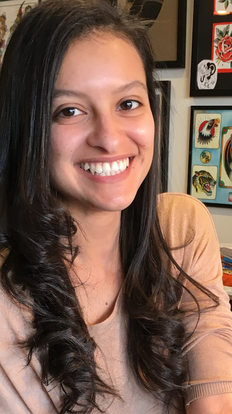 Bio: Deena ElGenaidi is a writer living in Philadelphia. She graduated from Rutgers Camden's Creative Writing MFA program in 2016 and currently works as an editor at an academic publisher. Deena has taught English at a number of local colleges as well as in Morocco and Peru. She lives with her cat Sasha, named after Sasha Obama, and writes primarily fiction. 4/20/2017 Poetry by Matt DugganWhere Dead Dolls and Bald Mannequins Live Wild grass is now the floating dust particles of human flesh spinning in air like pollen in silver pools; The books have been replaced in a library that empties ink into burial holes circled with biblical waste. A god murders a goddess where decapitated ghosts swear an oath for doctrines that swept us all in unholy chaos; monuments in chalked yellow topple and crumble with single shoes and sandals caked in the leather of scarlet. Hurting children play with dead dolls where bald mannequins sway in the openings of broken glass; Children without skin a hydra building another severed head swapping eyes for a millennium of benevolent prayer under a tomahawk sunrise a Motherland is aggrieved. Did I Piss on your Psychopomp ? The passage that you take beyond stars that don’t exist a journey that covers the earth where judgement is the tool used to undermine intelligence; Over seeking of attentive listeners did I piss on your Psychopomp? smell the air and touch the petals in gardens of the unconventional, treat each ageless day as a secret between passengers folding flesh into envelopes posting grievance to the offices that monitor each watchful breath I take – Rub salt into my eyes I’ll heal the battered holes in the body with the towering roots from a red orchid, keep me in the shadows where I can break the light that you use to punish. Those anecdotes of a life unlived have become the fuel in an empty engine optimised by a lite match that I carry inside my eyes waiting to ignite Leading your navigator into a new world that you cower behind - Did I piss on your psychopomp? Metal We are selling the metal that kills so we can afford the spoons that feed our children; then killing them with the metal that we’ve just sold feeding them with the blood on the spoons from happy meals. We place them in the hands of our enemy - How far into this storm must we all walk before we feel the cold? preferring the shine of falling eggshells in metal where breath with flesh is applied – prescribing to gain from the metals of subtraction. The daylight would be our undoing eyes were transfixed by computer generated handshakes - division of the heart and soul the lies are the truths of man’s inked ruin where only smoke rings travel along carpets like tiny drunken mice. We are selling the metal that kills So we can afford the spoons that feed our children. 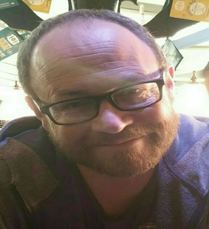 Bio: Matt has had his poems appear in many journals such as The Journal, Ink, Sweat, and Tears, Apogee Magazine, Harbinger Asylum, Prole, Algebra of Owls, London Grip, in 2015 Matt won the erbacce prize for poetry with his first full collection Dystopia 38.10 (erbacce-press) and in 2016 won the Into the Void Poetry Prize, Matt has a new chapbook out called Metropolis (Hunting Raven Press) and will be doing his first readings in Boston this May 2017. 4/20/2017 Meeting Aurora's Parents by Peter GannonMEETING AURORA’S PARENTS They started seeing each other. Aurora had brown, lioness hair. A body with enough curves to fill a geometry textbook. On her back was a mural tattoo. Vivid images of pandas, lotus flowers, and butterflies. It was a cool mural, but Kenneth couldn’t help but think it would be more appropriate on the wall of a Chinese take-out restaurant. One day, she dragged him to a SoHo art gallery. As they were leaving the exhibition—a mind-numbingly dull retrospective of some obscure dead Taiwanese’s stencils—she said, “I want you to meet Mike and Evelyn.” “Your parents?” “Otherwise known as the couple who brought me into this messed-up world.” Kenneth didn’t respond. “You think it’s too soon?” she asked. “Are you having doubts about us?” He was. Other than the tantric sex, what really did they have in common? He worked for a bank. She was a Chakra healer. He liked to spend his free time golfing. She liked to meditate in a closet for hours. He tended to vote for moderate Republicans. She often talked about assassinating them. But he wasn’t ready to give up the sex. “No, I’m not having doubts.” She threw her arms around him as if he’d just asked for her hand in marriage. “Oh, they’re going to love you. You’re like the first guy I ever dated with a job, and wait until I tell them you don’t have a drug problem or a criminal record.” His stomach tightened like a pit bull’s jaw. He was as clear as a Windexed window and, though love had blinded Aurora, her parents would see right through him. No streaks, dust, or smudges, nothing to blur his corrupted soul, and they would know just by looking at him that he wasn’t all that into their lovely daughter. Also from the little that she told him about them he just didn’t see how they would ever relate to him. In the late sixties, they had briefly lived in a commune and had prayed nightly to a harvest moon god named Orkfo. They had conceived Aurora at Woodstock in the middle of a bad acid trip. (Her mother was hallucinating paisley caterpillars and King-Kong-sized dragonflies.) In contrast, Kenneth’s parents were good Presbyterians who had a longstanding country club membership. His father, reared on Philadelphia’s Main Line, played tennis on his own backyard court and swam laps in the country club’s Olympic-sized swimming pool and had never in his life been within twenty yards of a recreational drug. Kenneth’s mother liked to bird watch and invest her wife bonus in oil and gas funds. A week later, Kenneth and Aurora arrived at her parents’ house, a well-maintained, modest colonial home. Mike, her father, was at the front door to greet them, and he was not the aging-hippy that Kenneth had expected. His hair was short, a natural brown, and combed back, revealing a strong hairline. His face was clean-shaven and his body, more football player than peace activist. “You’re late,” he said to them. “Evelyn was getting worried.” He had a toothpick in his hand and he began stabbing his teeth with it. They stepped inside, and Aurora pecked Mike on the cheek. Mike closed the door and Evelyn walked out of the kitchen. She too was a revelation: Mary Tyler Moore hair, a strained smile. Around her neck, a sweater that she was wearing like a cape. “Evelyn Grey,” she announced like a teacher doing roll call. Kenneth and Aurora put down their overnight bags. Mike then led them into the living room. “Kenneth, have a seat,” Mike said and he pointed with his toothpick to a slipcovered sofa. “Would you like a drink? Ginger ale, water, beer?” “A glass of water will be fine,” Kenneth said. “Bumble bee, get your boyfriend a glass of water.” Kenneth positioned himself in front of the sofa, tugged on his Brooks Brothers slacks, and was about to sit, when he stopped himself. “I just remembered . . . We have some more stuff in the car, Mr. Grey.” “Call me, Mike.” Evelyn smiled, showing a set of flawless teeth. “You need a hand?” Mike asked Kenneth. “No,” Kenneth said. “It’s only a few things.” Kenneth walked to the door and went to open it, but it was locked. “Hold on,” Mike said. “The door’s kind of tricky.” “For Pete’s sake!” Evelyn cried. The door had three locks: a barrel bolt, chain lock, and dead bolt. Kenneth stepped out of Mike’s way, and Mike, who smelled of menthol cigarettes, began undoing the locks. Mike then swung open the door. “Thanks,” Kenneth said, and he went to open the screen door. “Let me get that too,” Mike said. “No, I got it.” “Mike, come into the kitchen,” Evelyn pleaded. “The latch sometimes gets stuck.” Mike reached over, and, after wiggling the latch a few times, managed to open the door. Kenneth retrieved the stuff from the car—Aurora’s yoga mat, her book on the deforestation of the Amazon jungle, and a bottle of White Zinfandel—and headed up the walkway. When he got to the front door, he tried opening the screen but couldn’t. Was it stuck? No, it was locked. He rang the doorbell and, a little while later, he heard the barrel bolt sliding back, the chain, and then finally the dead bolt. Mike, chewing on his toothpick, opened the door and then unlocked the screen. “You got everything?” In the foyer, Kenneth leaned the yoga mat against the wall, and Aurora, in rainbow socks, came shuffling out of the kitchen as though she were on cross-country skis. She had a glass of water in her hand and she exchanged it for the deforestation book and White Zinfandel and then, without saying anything, shuffled back into the kitchen. Mike locked the door. Kenneth took a sip of the water and wandered into the living room and sat on the sofa. Eventually, Mike wandered in and stared at him as if he were a squatter. “Did you lock my daughter’s car?” Kenneth put the glass of water down on the coffee table. “No.” “Aurora!” Mike yelled, and she came shuffling back into the living room. “He didn’t lock your car.” Kenneth jumped to his feet. “I didn’t want to insult the neighborhood.” “Kenneth’s right,” Aurora said. “Not trusting your neighbors is such bad karma.” “We should lock it.” Mike said, not at all swayed. He pulled the toothpick out of his mouth, and Kenneth noticed that his left hand was missing the pinky. Mike walked to the door and slid back the barrel bolt, chain, and dead bolt. “This will only take a second, Mr. Grey,” Kenneth said. “I don’t want you going to all the trouble of locking up.” “Put The Club on too, please.” “She doesn’t have one.” That set Mike’s eyes afire. He looked as if he were about to say something, nothing good—I hereby disinherit my only daughter Aurora, perhaps—and so Kenneth, not wanting to hear it, hurried off. The driver’s side door to Aurora’s Volkswagen Rabbit was unlocked, so Kenneth opened it, pushed the lock button down, and shut the door. He looked up at the house. Mike was guarding the front door as if his home might come under siege. The passenger side door too was unlocked, and unlike Kenneth’s 5-Series BMW, which was in the shop being serviced, Aurora’s Rabbit had no power lock switch so, he lumbered around to the passenger side door, opened it, and pushed the button down. He looked up again. The front door was closing. He hurried up the walkway but, by the time he got to the door, it was closed. And locked. Was Mike for real? He rang the doorbell. A few seconds passed, he heard the barrel bolt sliding back, the chain, and then the dead bolt. It was Aurora. “He had to help Evelyn open a jar of tomato sauce.” She unlocked the screen. “My God. I got an earful. Why did you tell him I don’t have The Club? It's at home. Underneath my futon." That evening, at dinner, Kenneth, determined to make a good impression, pulled out a chair for Aurora. At one point during the meal, Evelyn began talking about how she had redecorated the sunroom. “The room’s pinstripe wallpaper is very elegant,” Kenneth said. Evelyn put down her fork. “Why thank you, Kenneth.” Later in the meal, Mike started explaining how, by driving limousines at night, he had raised enough money to open his own stationery store. “That’s an inspiring story, Mike,” Kenneth said. “Sometimes, I wish I had my own business.” When they were done eating, Kenneth said, “The stuffed manicotti was excellent, Mrs. Grey.” After dinner, Kenneth pulled Aurora aside. “Were you guys ever robbed?” “No.” “Does the neighborhood have a high-crime rate?” “Not that I know of.” “Is your father a member of a crime family with a price on his head?” “Would you stop it? He’s just protective of us. His stationery store’s in a bad part of town and was once burglarized. His paranoia has to do with Vietnam. He was a prisoner of war.” For six months, the North Vietnamese held Mike and five others from the 25th Infantry Division captive in a bamboo hut on the outskirts Da Nang. Once, two guards tried to get Mike to spit on a photo of Nixon. Mike hated Nixon and if a bunch of his fellow hippies in the West Village had asked him to do that, he’d have dropped his drawers and pissed on the photo, but not there, not in Da Nang. So, one of the guards, a man with pus-infected eyes, held Mike down, while another guard with flaring nostrils, pulled out a dull knife and sawed off Mike’s pinky. Given Mike and Evelyn’s free-love hippie past, Kenneth never expected them to insist on Aurora and him sleeping in separate rooms but when the ten o’clock news ended, Evelyn shut off the TV and said, “Kenneth, why don’t I show you where you’ll be sleeping tonight.” “You can’t be serious, Evelyn,” Aurora whined. Evelyn’s face reddened. “Not in front of our guest, Aurora.” “Mike.” “Don’t give us grief, bumble bee,” Mike said. “This is so bourgeois.” Evelyn stood ramrod straight. “Follow me, Kenneth.” A wall-sized bookcase was in the guest room, and, after saying good night to Evelyn, Kenneth began scanning the bookcase’s titles, mostly novels, show-business biographies, and social commentaries. Kenneth pulled a book off the shelf--Couples by John Updike—and rolled into bed with it. He started flipping through the novel, enjoying a few vignettes on the sexual revolution. Then there was a knock on the door. It must be Aurora. He put the book down, and the door crept open. Mike peered in, eyes as vigilant as a Secret Serviceman’s, a cigarette dangling from his lips. “Excuse me, Kenneth.” A double-hung window was in the room. It was opened halfway. Mike walked over to it, pulled it down, and turned the latch. “All set now, Kenneth. Good night.” And Mike left. Eventually, Kenneth drifted off to sleep, but in the middle of the night, a soft whistle woke him up. What was it? He sat up. It sounded like a tea kettle. He climbed out of bed. The hallway was dark. Was anyone going to take the kettle off the burner? Aurora’s bedroom door was closed, so was her parents’. Perhaps the whistle was the wind through a gap in a door or window. He went back to the guest room and closed his door. He checked his Omega. It was 2:30 a.m., and, with the whistle still sounding, he crawled back into bed. In the morning, Kenneth found Evelyn and Aurora in the kitchen. “I hope Mike didn’t keep you up last night,” Evelyn said to him. She was at the stove, flipping a pancake. “He’s been having trouble sleeping, and those electric trains can be so noisy.” “No. I slept soundly, Mrs. Grey.” “Mike needs to see a sleep specialist, Aurora.” Aurora, who was nursing a cup of green tea, said, “Where is he anyway?” “The stationery store.” “Perfect,” Aurora said. “Kenneth, my horoscope is telling me we need stop by there on the way home.” “That would mean the world to him,” Evelyn said. On the way to the stationery store, Kenneth wondered how his visit had gone. As far as he could tell, he hadn’t made any major missteps. Sure, he’d neglected to lock Aurora’s car, and if he had only kept his mouth shut about The Club . . . But all and all he thought he had done just fine. When it came to girlfriends’ parents, he’d always considered himself an acquired taste, but Aurora’s parents seemed okay with him. “They loved you,” Aurora said, sounding less than thrilled, her eyes on a Hot Tuna CD she’d pulled from the glove compartment. “You sound kind of disappointed.” She shrugged, apathetically. “At the fork in the road bear to your left.” When he’d described his privileged and somewhat Puritanical upbringing to her parents, to his surprise, they nodded, approvingly. And then, as if to dispel any notion that they viewed his staid childhood as emblematic of everything that was wrong with the country, Evelyn said, “It’s so important to come from a stable home.” They also gave no indication, verbal or otherwise, that they thought his intentions regarding their daughter were anything less than pure. Had he fooled them? He might have, and he suddenly felt an elbow of guilt to the ribs. Should he rethink his opinion of Aurora? Perhaps if he slid their relationship under a high-powered microscope, he could discover strains of commonality. And too bad about Mike’s long stay at the Hanoi Hilton’s Da Nang location, but Mike seemed to be dealing with the trauma the only way he knew how. “At the corner make a left, Kenneth,” Aurora commanded. Kenneth slowed the car and then did as he was told. They drove through an underpass, and, at once, the neighborhood started changing. The streets were potholed. A shirtless teenager was rolling an 18-wheeler tire on the sidewalk. Rusted cars on overgrown lots. Broken bottles. “We’re almost there,” Aurora said. They made a right into a shopping center, and, squeezed between an ice cream parlor and supermarket, was a slim storefront with a red awning. “There it is,” she said. “The Paper Weight.” Inside the stationery store, Mike was standing behind a counter, ringing up a cigar sale. When he saw them, his eyes jumped for joy. “Your mother called, bumble bee. She said you might be stopping by.” From behind the counter, Mike pulled out a plastic bag; it was filled with Tootsie Rolls, Good & Plenty, and Life Savers. “A little something for the ride home, Aurora. Take whatever magazines you want too.” A cargo truck was pulling up outside the store. “The greeting card delivery . . .” Mike said and he walked around the counter and put his hand on Kenneth’s shoulder. “Make sure nothing happens to my Aurora.” A week later, after an unusually prolonged session of tantric sex—six hours and twenty minutes, their new all-time record—Kenneth and Aurora were lying in bed, recovering, when she said, “I met someone else, Kenneth.” Kenneth tried summoning an emotion—any emotion—but couldn’t. “Who?” he asked. “You’re hurt, aren’t you?” He didn’t respond. “He’s married . . .” Kenneth rolled over to face her. “I can’t believe you’re telling me this?” “I met him a few months ago.” “At the ashram?” “He’s my soulmate. From a past life.” “So why the hell did you have me meet your parents?” “Lucas doesn’t have a job. He got laid off.” “So you were—” “Mike and Evelyn are always on my case!” “You wanted to show them you could date a guy who wasn’t a complete loser?” “Knock it off.” “You’re fucked up!” “You look relieved!” He had to admit he was. A prisoner of her body, no more. He sprung out of bed, her dirty rolled-up socks beneath his feet like cow chips. “Well, I guess my work here is done.” Kenneth started playing the field where he found no shortage of willing partners. There was Priscilla, the chatterbox hairstylist from Bay Ridge. Dolores, the ambidextrous ambulance attendant, who worked the midnight shift on Fridays. Wendy, the austere yet sexy healthcare executive. He had his fun, but the years started rolling by, and, if he kept up this lifestyle, wouldn’t he end up middle-aged and alone? But then, fed up with the singles scene, he found himself engaged to a woman from Morocco. She sold perfumes at Bloomingdale’s. But a month into their engagement, when she showed him her credit card statements—$10,000 for clothes, furniture, and entertainment (mostly, dining out at five-star restaurants)—Kenneth grew concerned. He liked auditing banks but couldn’t imagine auditing his wife every quarter. He broke up with her. He dated a few other women—a public relations executive, a ballet dancer, a tabloid journalist—and was now seeing an aspiring family-law attorney named Willa, who, to pay for law school, was working as an administrative assistant at the bank Kenneth worked for. One day, when Kenneth was at the bank’s Manhattan headquarters, his supervisor stopped by his office. “Kenneth, we need to talk about that new Long Island branch.” Kenneth looked up from his spreadsheet. “They have a lot of irregularities.” “That’s what I want to talk to you about.” “Mostly with their mortgage disbursements, but there’s a curious trend with check deposits in excess of five thousand dollars.” “Keep a close eye on it, okay? If it’s funny business, someone’s going to get locked up.” Kenneth drove out to the branch. Wasn’t it located in the town where that girl Aurora grew up? As he got closer to his destination, the neighborhood started looking familiar. The underpass. The potholes. The overgrown lots. He pulled into a shopping center’s parking lot. What a coincidence. It was the same center Aurora’s father’s store had been in. The bank was located, where the supermarket used to be, and beside the bank was Mike’s store. How about that. The awning had changed. It was now green. The name of the shop, however, was the same: The Paper Weight. Later that day, on his lunch break, Kenneth walked by the stationery store. It looked a bit different. The checkout counter, for instance, had been moved closer to the entrance. He considered going inside. Mike and Evelyn were cool. It was too bad the baby had to be thrown out with the bath water. But that was life. If he saw Mike, he’d say hello. Ask about Aurora. But an encounter like that might be awkward, so, he decided against going inside. One day, he returned to the bank, and, while getting out of the car, noticed—a few parking spaces away—a brand new SUV. Its license plate read: POW 1971. He walked by the car. The Club was on the steering wheel. That afternoon, as he was leaving the branch to go home, he felt thirsty. Where could he grab a Coke? He looked around the center. A new deli had opened on the other side of the lot. But he was in a hurry. That evening, he and Willa, who was now his fiancée, were going to look at a reception hall for their wedding. He went inside the stationery store. A freckled blond was yawning behind the counter. From a refrigerator, he grabbed a Coke and paid for it at the counter. Should he ask her about Mike? But then a teenage boy, holding crepe-paper streamers, practically pushed him aside. “Miss,” the boy said. “How much are these?” On his way out of the store, Kenneth spotted Mike. He was in an aisle, looking a little lost. His hair was graying. He was much thinner, a small hoop earring in his left ear. The missing pinky. As Kenneth walked by, Mike, who was unloading a shipment of Bic pens, turned to face him. They briefly made eye contact, but, caught off guard and not knowing what to say, Kenneth kept walking. But in Mike’s eyes Kenneth saw a glint of recognition. A few weeks later, Kenneth was in the branch, making his way toward the vault, when he accidently bumped into a man waiting in line for a teller. “I’m sorry,” Kenneth said. It was Mike. “Would you mind paying attention?” “My bad. Are you okay?” Mike was holding a pouch and deposit slip. “Don’t we know each other?” Kenneth asked. Mike’s demeanor softened. “You’re a friend of my daughter.” “Yes. Aurora.” Mike started snapping his fingers. “Kevin . . . ?” “Kenneth.” “That’s right. I’m sorry. Mike.” They shook hands. “So how’s Aurora?” Kenneth asked. “She’s got two boys and a girl . . .” “No way.” Kenneth smiled. “And your wife?” Mike covered his mouth with his hand and coughed. His sports coat opened, revealing a gun in a shoulder holster. "Evelyn's fine. Doing what she does best. Worrying about me. How are you?” “I can’t complain.” “Still in banking I see.” “I work in the city but I come out here from time to time. How’s your business?” Mike suppressed a cough. “A little slow. But it’s picking up now.” “Sir!” It was the teller. “Good seeing you,” Mike said. “Same here. Tell Aurora I said hello.” One day, Kenneth returned to the branch and on his lunch break went to the new deli. At the salad bar, he filled his plate with chicken and rice and walked into the dining area. It was empty, except for Mike and Evelyn. Not knowing what to say to them, Kenneth went to leave, but then they met his gaze. He stopped. What should he do? The dining area was small and it would be odd to sit at another table. But it seemed equally odd to sit with them. Then Mike stood as if he were in his own home. “Kenneth, join us,” he said, extending his hand to the empty chair across from them. Kenneth walked over to them. He shook their hands. “Mike told me he saw you not too long ago,” Evelyn said. “Yep, it’s all true,” Kenneth said, sitting. Mike, who had been eating a thick roast beef sandwich, picked up the sandwich with two hands. He opened his mouth as though he were in a dentist chair and took a bite. Kenneth twisted the cap off his Coke. “So, how’s the chow here?” “The bread’s a little stale,” Mike said, chewing. Evelyn, who was picking at a fruit salad, said, “He shouldn’t be eating that.” “She’s right,” Mike said, “but, hey, you got to go off diet every once in a while.” “But your husband’s in such good shape.” “Looks can be deceiving.” Evelyn said. Mike covered his mouth with his hand and coughed. “I’ve got high cholesterol. Throw in my emphysema . . .” Mike put down his sandwich. “For years, I tried to quit smoking, but couldn’t. I’ve quit now though.” “We’ll see how long that lasts,” Evelyn said. “I never should have started in the first place but, when I was young, everyone smoked. Then I got drafted . . . overseas, it was the only way to relax.” Kenneth picked up a piece of chicken. “So how’s Aurora. Your husband told me she’s got a houseful of kids . . .” “Daniel just turned seven,” Evelyn said. “Chelsea’s four, and Samuel . . .” She shook her head. “I can’t believe it. He’ll be three already.” “Time flies,” Mike said. “And how are you?” Evelyn asked. “Do you have children?” “No, but I’m getting married in a few months.” “Congratulations,” Evelyn said. “That’s great,” Mike added. Kenneth told them about how Willa was in her final year of law school. “Thinking back to when Aurora got married,” Mike said, “relatively speaking, the wedding was on the cheap. It was on a beach, officiated by one of her friends, a minister of some church we’d never heard of, but even so with all the guests it wound up costing a lot.” “It took Mike six months to pay it off,” Evelyn said. “Yeah,” Kenneth said, “etiquette still requires the bride’s father to foot the bill.” “Somethings need to change.” Mike smiled. “Perhaps,” Kenneth said, “but unfortunately in my situation the rule doesn’t apply. Willa’s parents are both deceased.” “Oh, that’s too bad,” Evelyn said. “They didn’t live to see their daughter walk down the aisle.” “They were killed in a car accident when she was in college.” “Terrible,” Mike said. “They were social workers. The way Willa describes them . . . they sounded great. I wish I had a chance to know them.” Kenneth paused. “Is Aurora still into Chakra?” Mike smirked. “More like Little League and playgrounds.” “She still making her own clothes from hemp?” “Not too much anymore,” Evelyn said. “With three kids . . .” Kenneth said. “I can understand.” “She’s going through a tough divorce,” Evelyn added. “Oh,” Kenneth said. “Sorry to hear.” “What can you do?” Mike said. “It’s probably for the best.” “We just hired an investigator to chase down her ex for child support,” Evelyn said. “Dead beat,” Mike added. “We think he’s on some small island off the coast of Venezuela.” Kenneth paused. “Well, she’s lucky to have you two.” On Kenneth’s next few visits to the branch, he only saw Mike once, from a distance, walking to his SUV, a cigarette dangling from his lips. Then one day, when the audit was nearing completion—there’d been no criminality, only gross negligence—Kenneth got an ice cream cone at the parlor next to Mike's store. On a whim, he decided to go into The Paper Weight. The freckled blond was at the register, sorting bills. “Is Mike here?” he asked. “Hasn’t been in weeks.” “Do you know when he’ll be around?” Kenneth licked the cone. “Not sure. Why? Are you a friend?” Kenneth paused. “I work at the bank.” She picked up a roll of quarters and cracked it against the counter like an egg. “Your best chance is to call him at home. What’s your name?” “Kenneth.” “I’ll tell him you stopped by.” Outside, the parking lot was emptying. Kenneth had a vague idea where the Greys’ house was, but it had been years. He tried recalling. He wasn’t entirely sure, but if he had to—and he knew he’d never have to—he could probably find it. He imagined Mike at home, his gun in a secure place, perhaps in a safe beneath the stairs. Mike, walking the rooms: the sunroom, the guest room, the basement where the electric trains ran at night, the dry cough, making sure every window and door was locked, the missing pinky. Evelyn pleading with him to sit still. Kenneth threw his briefcase into the backseat of the car. Tonight, he and Willa would be going over the guest list for their wedding. He got behind the wheel, fumbling for his keys, his thoughts on traffic and time—it was almost six o’clock—and how he’d better get a move on. Bio: Peter Gannon is a writer from Manhattan and holds a B.A. in English Literature from Columbia University. His work has appeared or is set to appear in The Alembic, Slow Trains, 2 Bridges Review, Agave Magazine, Gadfly Online, The Talon Magazine, Amarillo Bay Literary Journal, The Blotter Magazine, and other journals. 4/19/2017 Poetry by Linda M. Cratesometimes you have to swim i was always on the outside looking in, looking for a scrap of love or affection; but too shy to ask for friendships—when push came to shove no one's ever fought for me, it's easier for them to let me go and die to my life; i know that am intense loving more and caring more than most—but i am fiercely loyal and i am a true friend, and when i love it is forever even long after they've forgotten and replaced me; i have learned loving myself is the purest and truest love i may ever find—everyone's so busy, too busy trying to save themselves in this hectic thing called life to notice if you're drowning; sometimes you have to swim even when you're anchored to your grief that's trying to drag you beneath the waves—you are worthy of the love you crave even if you never receive it. japanese flowers the only woman i loved as something other than friend was also the one who taught me that my scars made me beautiful—she looked at my scars after my gallbladder surgery and said they looked like japanese flowers as she traced over the scar with her fingers, and she told me that she couldn't understand my shame because she found our scars made us beautiful; it turns out she was right—in every broken place that's where the light always gets in me—she always struck me as otherworldly; a faerie that smelled of roses who was both vulnerable and soft yet fierce and thorned—she reawakened dreams in me when i thought the dreaming was dead, and accepted me as i was; all these years and years later after the misunderstanding that unraveled our friendship, i still find her unforgettable—my grandmother said she was a bit of a character, but i think that was why i loved her so much. i am intense seared with scars, charred from the flames of the past; sometimes it's hard to remember that the water heals for all she takes away; but i remember in my weakest and most painful moments she gave me her hand and washed me clean of this anger and these wounds—i never knew daylight could be so violent until the sun and rain conspired against me to destroy me utterly, but i wouldn't surrender to his power; yes, i died but i rose again—i looked him in the eye and laughed to show him that i was stronger than every monument of pain he sculpted into my heart, to show him that i didn't need him anymore; even if it were a pretty lie to protect myself from the anguish of the intensity of these feelings i still feel—you can't choose what stays and what fades away, but they insist that he is my past to leave him behind; but i am not past the pain—i have a love that never dies and a heart that always cares even when it's bruised because i am unconditionally loving, a never ending light; everything about me is intense—i can't half-ass anything.  Bio: Linda M. Crate is a Pennsylvanian native born in Pittsburgh yet raised in the rural town of Conneautville. Her poetry, short stories, articles, and reviews have been published in a myriad of magazines both online and in print. She has three published chapbooks A Mermaid Crashing Into Dawn (Fowlpox Press - June 2013), Less Than A Man (The Camel Saloon - January 2014), and If Tomorrow Never Comes (Scars Publications, August 2016). Her fantasy novel Blood & Magic was published in March 2015. The second novel of this series Dragons & Magic was published in October 2015. The third of the seven book series Centaurs & Magic was published November 2016. Her novel Corvids & Magic was published March 2017. Her novel Phoenix Tears is forthcoming. |
AuthorWrite something about yourself. No need to be fancy, just an overview. Archives
April 2024
Categories |
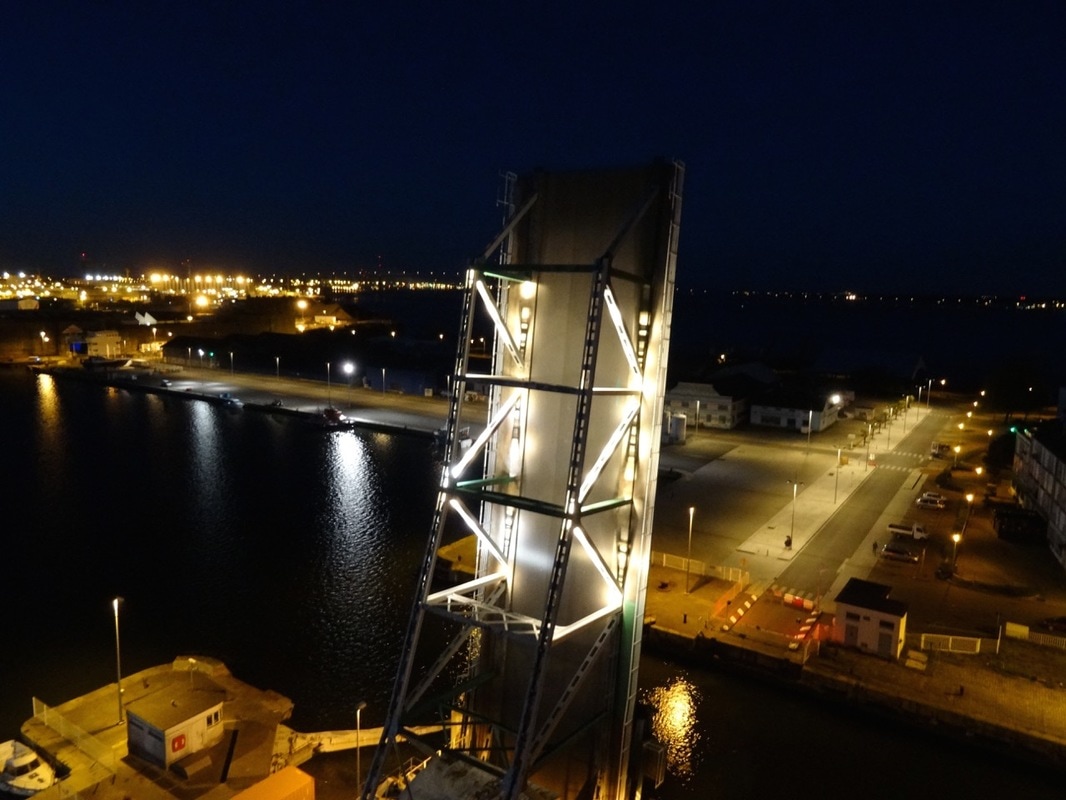

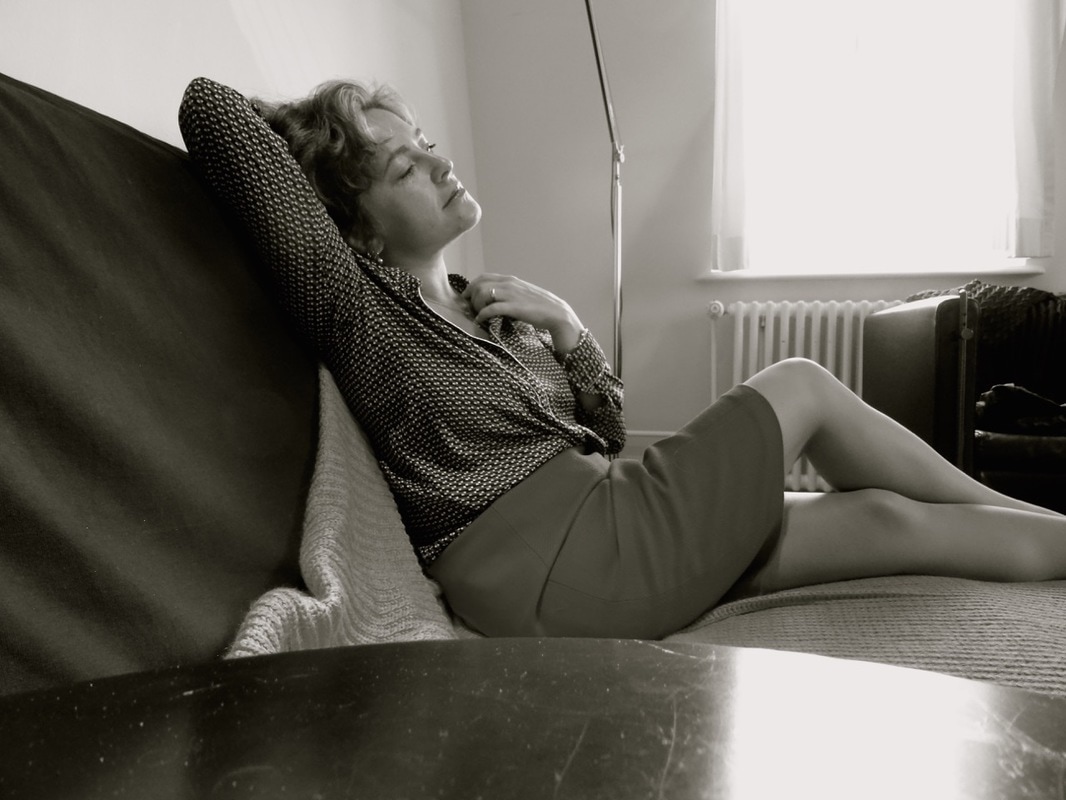


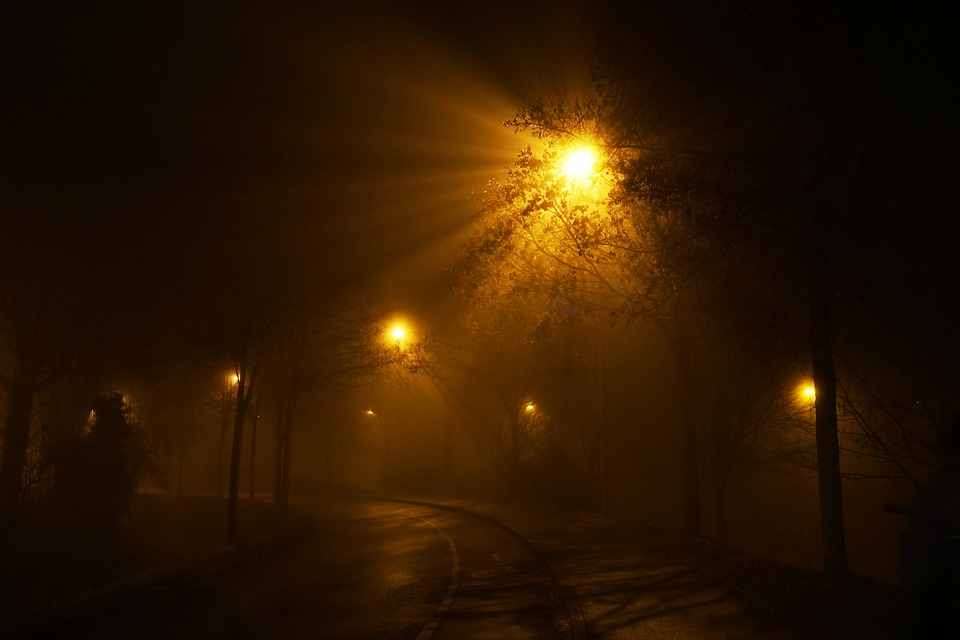
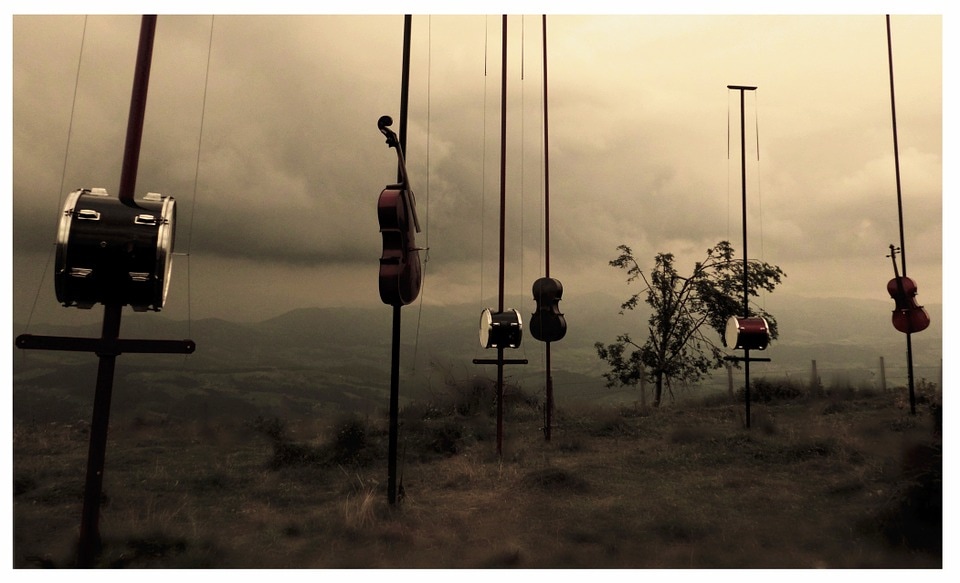
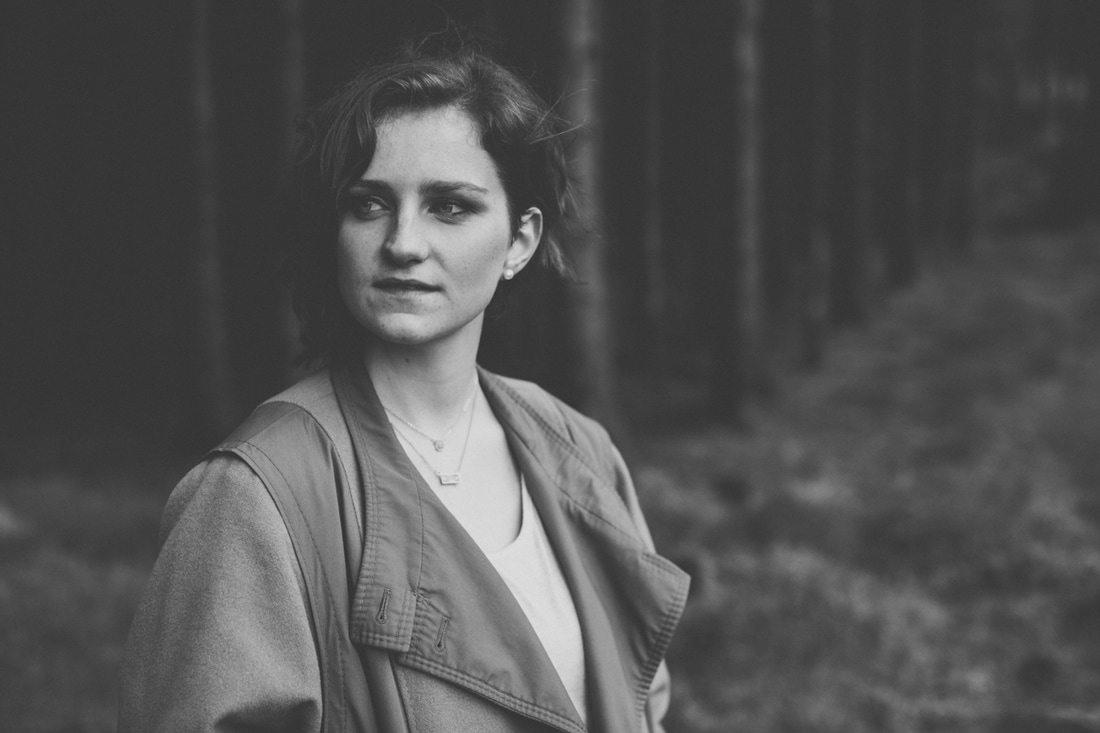



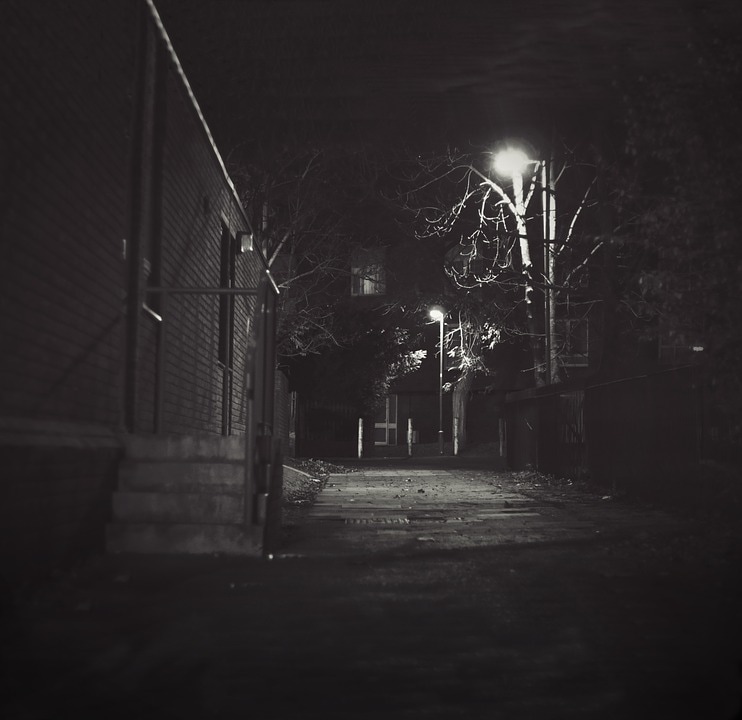

 RSS Feed
RSS Feed
